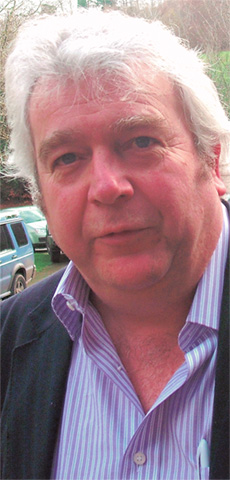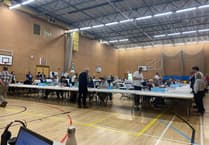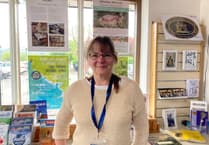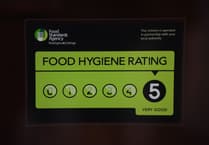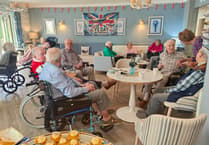SOUTH Hams child rapist Phillip Walton was this week beginning an 18-year jail sentence for a series of sex offences against young girls.
A jury at Plymouth Crown Court found Walton guilty of offences ranging from rape and attempted rape, to indecent assault and sexual activity with a child.
Walton stood motionless in the dock on Wednesday afternoon as the foreman of the six-men, five-women jury returned unanimous guilty verdicts on a total of 12 charges.
Judge Mr Recorder Jonathan Fuller QC, speaking to Walton, said he had been found guilty of rape, two charges of attempted rape and of sexually assaulting young girls.
Prior to sentencing, prosecuting barrister David Sepiecha QC reminded the judge that the ages of the child victims ranged between six and 15 at the time of the offences. He said there were 'multiple offences' and 'multiple victims'.
Defence barrister George Thelfall QC asked the judge to take into account that five years had elapsed since the last offence and Walton had no previous convictions. He added: 'He will find it more difficult to serve a prison sentence than a younger offender.'
Earlier, the judge had summed up evidence of a series of sex attacks on four young girls from two families in the Dartmouth and Kingsbridge areas.
In three separate police interviews, 56-year-old Walton, of the Hideaway Speakeasy, a club he ran in Mill Street, Kingsbridge, maintained he was innocent.
Walton said in one interview: 'I don't hurt kids' and that he 'had no sexual interest in children'.
Earlier Mr Fuller had said that the allegations first came to the attention of the police in May 2010, after girl A told a friend she had been sexually assaulted and later, in 2010, told her boyfriend and another member of her family. It was only then, that girl A went to police with her allegations, Mr Fuller told the jury.
The judge told the jury that girl A, under cross-examination by defence barrister George Thelfall, said she didn't know why she didn't tell her mother at the time of alleged incidents, which included rape. It was put to her that it was possibly a dream but she denied this in court, insisting that it did happen.
Girl B had also told a friend she had been sexually abused and later confided in a boyfriend who was concerned that she was upset.
She claimed she had been sexually abused when she was younger but didn't want to tell anyone, the jury was told.
When interviewed by the police in April 2010, girl B claimed Walton had put his hand down her pants and also made her touch his private parts.
In August 2011, in a second police interview, girl B further alleged that Walton had attempted to rape her.
The judge said when she was cross-examined why didn't she make the allegation at the earlier interview, she said that 'she tried to black it out'. She added there were 'many things she had forgotten' and 'didn't want to go into details'.
Turning to the evidence concerning a third girl, Mr Fuller said that a friend of hers told the court that in 2009 she had claimed Walton had touched her and the friend understood that to mean sexually.
Another friend, around the same time, was also told by girl C that she had been touched inappropriately.
When interviewed by the police, in May 2010, girl C accused Walton of lying alongside her and 'fiddling' with her while she pretended to be asleep on a day she was ill.
During cross-examination in court, she said she didn't know how to react and rejected a suggestion that Walton just wanted to check her temperature.
She also claimed Walton made her lie on top of him on the sofa.
She also recalled a conversation with a friend who had told her about another of the alleged victims, the jury was told.
During a second police interview, in February 2011, girl C claimed she had been having nightmares about what Walton had done to her. In court she admitted she had an intense dislike for him.
Girl D, the judge told the jury, had made no mention of being sexually abused during a police interview about an unrelated family matter in 2009.
In March 2012, during a police interview concerning Walton's alleged sexual abuse, she told how he had twice made her lie down on a sofa with him and hold her hand on his private parts. She said had been 'a bit scared' and that she 'felt sick' and was 'disgusted with him'.
She also said she didn't know other girls had made allegations against Walton.
The judge also reminded the jury that under cross-examination she said that no one had put ideas into her head.
Outlining Walton's defence case, the judge said he'd been interviewed three times by the police, first in May 2010, then in September 2011 and again in March 2012.
Each time he denied all the allegations.
The judge said it was Walton's case that the alleged offences didn't happen.
Prosecuting barrister David Sapiecha had earlier given his closing speech, shortly after the jury was told of an additional alternative charge to the attempted rape of girl C – that of indecent assault.
He said the four alleged victims were intelligent ladies and decent people who had attempted to give an accurate reflection of true events which were difficult, embarrassing and distressing subjects to talk about.
An alternative, he told the jury, was that the girls had imagined what went on or that they woke up one day, years later, and said to themselves, let's accuse Walton of serious sexual assault and contact other girls to say the same thing.
'How realistic would this be? What's the motive?' asked Mr Sapiecha.
'The prosecution say they are decent people, telling the truth,' he added. 'What hatred in them would drive them to lie?'
Mr Sapiecha added that 'these sort of offences happen in private' and that offenders are 'quite able to give a different persona in public.' He described Walton as manipulating and controlling, 'quite able to lie and con people'.
He said of Walton's tears in the witness box and during police interview: 'They are for him because he can't admit what's he has done.'
He added: 'The prosecution say the four girls are telling the truth.'
During his closing speech to the jury, defence barrister Mr Threlfall said that while it was easy to feel sympathy for the alleged victims, it was their duty to consider the evidence. He added that 'because of the passage of time' there was no forensic or medical evidence available.
Mr Threlfall said Walton 'honestly says he has no idea why these allegations have been made against him'.
Walton's evidence was that he was never alone with any of the girls, he said, so the jury might consider 'where was the opportunity?'
Mr Threlfall also asked: 'How reliable can anyone's memory be after 10-15 years?'
'False memories can intrude,' he said.
He said of girl A that she was 'quick enough to tell her mother about him [Walton] taking underwear but not about allegations of sexual offences'.
Mr Threlfall said there were also some inconsistencies between the evidence given by the girls and what their friends were told by the girls.
He said that was a 'constant thread throughout the case that all the friends were sworn to secrecy'.
'Were they feeling sorry for themselves and wanted sympathy?' Mr Thelfall asked. 'Is it because there is no truth in these allegations?'
He said of girl B that she was reluctant to give details of the allegations during her second police interview and didn't mention attempted rape when first spoken to.
'Is she reliable in her acccount?' he asked. He suggested, that some in cases, criminal injuries compensation can sometimes be a motive.
With regard to girl C, Mr Threlfall said 'she had agreed she had conceived a hatred' for Walton.
He added: 'If you hate someone it is very easy to make up stories about them.'
Talking about the evidence given by girl D, Mr Thelfall questioned whether she had had things suggested to her and whether her evidence was reliable.
'The issue is quite a simple one – did these things [the prosecution claims] happen or did they not?' he added.
He then told the jury there was 'sufficient uncertainty' surrounding the claims and added: 'If you are jointly uncertain, you should acquit.'
Walton, who has dual UK and Australian nationality, had earlier told the court that he had come to Britain in 1984 after meeting an English girl in Australia and following her back home and marrying her a year later.
They were still married when they came to Dartmouth in 1989 where they opened two shops selling 'models, memorabilia, T-shirts, all sorts', Walton told the jury.
He said they had 'got rid of' the shops and he launched his Aussie Phil's Austentatious BBQ Road Show, putting on barbecues for well-off holiday home owners.
Later he took over catering operations at both the Dartmouth and Torquay Yacht Clubs and opened a restaurant in Dartmouth.
He later worked in a pub in the Kingsbridge area and then opened a restaurant in Kingsbridge.
